Announcement
Collapse
No announcement yet.
Nagorno-Karabagh: Military Balance Between Armenia & Azerbaijan
Collapse
X
-
Re: Nagorno-Karabagh: Military Balance Between Armenia & Azerbaijan
Armenian military uniforms from Tigran the Great to modern times from http://razm.info/33450







 Azerbaboon: 9.000 Google hits and counting!
Azerbaboon: 9.000 Google hits and counting!
Comment
-
Re: Nagorno-Karabagh: Military Balance Between Armenia & Azerbaijan
Ադրբեջանում սպասվում է պահեստազորի համապետական մոբիլիզացիա
Մարտ 12, 2014
Ադրբեջանում ճշտումներ են կատարվում պահեստային ուժերի կրտսեր սպաների ցուցակներում։ Այս գործընթացին թերևս հաջորդելու է պահեստային ուժերի մոբլիզացիա։
Համաձայն ադրբեջանական լրատվամիջոցների տվյալների՝ պահեստային ուժերի կրտսեր սպաներին կանչում են զորակոչի ու մոբիլիզացիայի պետական ծառայության շրջանային զինկոմիսարիատներ, ճշտումներ են կատարվում նրանց փաստաթղթերում, նրանց վերագրանցում են, կատարում են վերահաշվարկ։
Ըստ ոչ պաշտոնական աղբյուրների՝ բոլոր ցուցակների ճշտգրտումներից հետո Ադրբեջանի ռազմականացված գերատեսչությունները՝ պաշտպանության նախարարությունը, զորակոչի ու մոբիլիզացիայի պետական ծառայությունը, պետական սահմանապահ ծառայությունը, ներքին զորքերը, պահեստային ուժերի համապետական մակարդակի հավաք են անելու։
Նրանց ոտքի են հանելու ուսումնական տագնապի ազդանշանով, որից հետո էլ պահեստային ուժերի զինծառայողները պարտավորվելու են պահանջված ձևով ու պահանջված ժամին ներկայանալ զորակոչի ու մոբիլիզացիայի պետական ծառայության՝ իրենց գրանցման վայրին համապատասխանող զինկոմիսարիատներ։
Comment
-
Re: Nagorno-Karabagh: Military Balance Between Armenia & Azerbaijan
CHECKING THE PULSE ON AZERI-ARMENIAN FRONT LINE
Institute for War & Peace Reporting , UK
IWPR Caucasus Reporting #726
March 5 2014
Speakers at IWPR debate discuss whether recent deterioration indicates
worse is to come.
By IWPR Caucasus - Caucasus CRS Issue 726,
A recent upsurge in shootings along Azerbaijani-Armenian front lines
is pronounced enough to alarm commentators on both sides, who are
unsure whether this is a temporary blip or the start of things to come.
Tensions escalated through the second half of January both along the
Armenian-Azerbaijani border and on the "line of control" that separates
Karabakh Armenian and Azerbaijani forces. Although full casualty
figures have not been released, Armenian officials confirmed that
two soldiers died on January 19 and 28. The Azerbaijani authorities
announced the deaths of two servicemen, on January 23 and January 27.
Breaches of the 1994 ceasefire are not uncommon, but there was
something about recent developments that made commentators pause for
thought. To probe the issues, IWPR brought together Armenian and
Azerbaijani experts for a joint event at which they discussed the
causes and implications of the latest incidents.
The January 30 event was held at the Media Centre in Yerevan, with
Azerbaijani participants taking part via a video link.
On the Armenian side, the speakers were Sergei Minasyan, deputy
director of the Caucasus Institute, and Manvel Sargsyan, director of
the Armenian Centre for National and International Studies. They were
joined from Azerbaijan by Kenan Guluzade, editor of the Baku Post
newspaper, and Avaz Hasanov, head of the Society for Humanitarian
Research and a member of the International Working Group for the
Release of Prisoners and Hostages.
Minasyan began by asking his colleagues about the significance of
the recent frontier skirmishes.
"Is this the start of more serious developments, or is it just the
standard situation on the front line which we've really been observing
for the last two decades?" he asked.
Sargsyan said increases in shooting were not uncommon when
international meetings were taking place - in this case, a meeting
between the Armenian and Azerbaijani foreign ministers.
"There's a perception that it's better to pursue negotiations in an
atmosphere of tension rather than calm. This philosophy gives rise
to all these things that are playing out on the front line," he said.
By contrast, Guluzade disagreed that there was anything unusual about
the latest incidents, since this kind of thing was a regular feature
of what was misleadingly described as a "frozen conflict".
All the speakers discussed possible reasons why the military narrative
was being dramatised.
Guluzade said what puzzled him more than the events themselves were
the hysterical media reports.
"The information coming from the front line is really just rumour at
the moment. No one knows how many people died, what kind of operations
have been going on, or what's really happening. Some Azerbaijani
bloggers are claiming up to 35 deaths on the Armenian side, but where
are the bodies of these soldiers?"
He continued, "I think the media and social network users are
exaggerating things far too much."
He said it was hard to work who had an interest in fueling this kind
of reporting - the Armenian or Azerbaijani governments as a whole,
or just the military or diplomats on one or both sides.
Hasanov agreed that the material appearing on social networking sites
was painting a totally misleading picture, so that someone who did
not use alternative news sources "might think war that had broken out".
"That's the impression that's been given recently - archive photos
from the [1990s] Georgian-Abkhazian war were posted, along with
video footage that even an expert would find it hard to identify,"
Hasanov said.
According to Minasyan, this propaganda war is not unusual - it fits
the past pattern of rhetoric around border clashes.
"In my view, when one assesses the situation over the last seven to
ten day, one really gets a sense of deja vu," he said. "Over the last
20 years we've repeatedly seen tensions to various extents. But for a
whole set of reasons, escalation has not led to real combat. Clearly
the political and military balance has had an effect, as has a
reluctance on both Armenian and Azerbaijani sides to make these
confrontations on the front line into something more substantial."
Minasyan said it was his view that the current tensions were not
a sign of impending conflict. Tit-for-tat shooting incidents had
their own dynamic in which they periodically increased or subsided,
but were prevented from growing into anything bigger.
Minasyan asked whether the recent appointment of a new defence
minister in Azerbaijan Zakir Hasanov, might have contributed to the
escalation in tensions, as the new official tried to demonstrate
a robust approach. Guluzade expressed scepticism about this idea,
saying the minister's role meant he was more of a "manager" and did
not really direct military operations.
Sargsyan said that border clashes happened as a direct expression of
policymaking decisions. The human cost was something that was rarely
discussed, but it was something people really cared about. In Armenia
and Azerbaijan, he argued, "the public could influence the leaderships
of both countries to abandon this policy".
The video-link debate - a rare opportunity for Azerbaijanis and
Armenians to hear considered views from the other side - was attended
by journalists and NGO representatives in Yerevan. It prompted over
a dozen articles published in both Armenian and Azerbaijani media.
Hayastan or Bust.
Comment
-
Re: Nagorno-Karabagh: Military Balance Between Armenia & Azerbaijan
Գյումրիի ռուսաստանյան ռազմաբազայի հրետանավորները զորավարժությունների են մասնակցելու Ռուսաստանում
Մարտ 13, 2014
Հայաստանում տեղակայված ռուսաստանյան 102-րդ ռազմաբազայի զինծառայողները մասնակցելու են ՌԴ ԶՈւ հարավային ռազմական օկրուգի զորավարժություններին, որին ընդհանուր առմամբ մասնակցելու է 8,5 հազար զինծառայող։
Զորավարժությունները կայանալու են հարավային ռազմական օկրուգի հրթիռահրետանային զորքերի հավաքի շրջանակներում։
Ռազմինֆոյի հետ զրույցում 102-րդ ռազմաբազայի հրամանատարի տեղակալ, գնդապետ Աշոտ Կարապետյանը հայտնեց, որ ռազմաբազայի զինծառայողների մի մասն է մասնակցելու հավաքներին։ Գյումրիից մեկնող զորախումբը իր հետ չի տանելու տեխնիկա, այլ զորավարժությանը մասնակցելու է այնտեղ տրամադրվելիք տեխնիկայով։
ՌԴ ԶՈւ Մստա-Բ հաուբիցը կրակի ժամանակ
Հավաքների ընթացքում կիրառվելու են Գրադ, Ուրագան, Սմերչ համազարկային կրակի ռեակտիվ կայաններ, Մստա-Ս ինքնագնաց հաուբիցներ, Նոնա ինքնագնաց հրետանային համալիրներ, Ռապիրա հակատանկային հրանոթներ ու այլ սպառազինություն։ Հավաքների ընթացքում շուրջ 50 մարտավարական զորավարժություններ են անցկացվելու մարտկոցների մակարդակով, ինչպես նաև կլինեն շուրջ 20 ստուգողական կրակային պարապմունքներ ու կիրականացվեն շուրջ 1000 կրակային խնդիրներ։
Զորավարժությունների ընթացքում զինծառայողները տարբեր տեսակի սպառազինությամբ կխոցեն 2-ից 15 կմ հեռավորությամբ թիրախներ։ Պարապմունքների ընթացքում թիրախները կխոցվեն ինչպես փակ դիրքերից, այնպես էլ ուղիղ նշանառությամբ, իսկ վարժանանքների մոտ 50 տոկոսը կանցկացվեն գիշերային ժամերին։
Հավաքների ընթացքում ստորաբաժանումները կներդաշնակեցնեն իրենց աշխատանքները ինչպես միմյանց միջև, այնպես էլ մոտոհրաձգային, տանկային ու դեսանտային ստորաբաժանումների, ծովային հետևակի հետ։
Հիշեցնենք, որ Ռուսաստանի 102-րդ ռազմաբազան տեղակայվել է 1995 թվականին Գյումրիում: Իրականացնում է մարտական հերթապահություն ԱՊՀ ՀՕՊ Միասնական համակարգի շրջանակներում։ Պայմանագիրը նախապես կնքվել էր 25 տարի ժամկետով, որից հետո 2010 թվականին ՌԴ Նախագահ Դմիտրի Մեդվեդևի այցի ժամանակ այն երկարաձգվել է ևս 49 տարով 2044 թվականը։
Բազան հագեցած է Սմերչ համազարկային կրակի ռեակտիվ կայանով, Բուկ, Ստրելա-10 և Ս-300Վ զենիթահրթիռային, Կոնկուրս հակատանկային համակարգերով, Գրադ համազարկային կրակի ռեակտիվ կայանով, 2Ս1 Գվոզդիկա ինքնագնաց հրետանային համակարգով, ԲՄՊ-2 հետևակի մարտական մեքենայով, Տ-72Բ տանկով, ինչպես նաև ՄԻԳ-29 կործանիչներով։ Անձնակազմը բաղկացած է մոտ 5 հազար հոգուց։
Comment
-
Re: Nagorno-Karabagh: Military Balance Between Armenia & Azerbaijan
Russian Warplanes Increasing Flights In ArmeniaOriginally posted by burjuin View Post

Sargis Harutyunyan
Հրապարակված է՝ 14.03.2014
Fighter jets deployed at the Russian military base in Armenia will continue to increase the frequency of their training flights and thus boost their combat readiness, their commander said on Friday.
“We are now trying to increase the intensity of our practice flights,” Colonel Aleksandr Petrov told reporters at the Erebuni military in Yerevan where most of the MiG-29 warplanes are stationed.
“But we are not alone here,” said Petrov. “An Armenian helicopter squadron also carries out flights here, and whenever they have days off we use them for flights. We are increasing the frequency of our flights to remain in good form.”

Armenia - Russian Air Force pilots at Erebuni airfield in Yerevan, 14Mar2014.
The Russian military has already reported significant increases in such flights carried out in Armenia in the last few years. A February 20 statement by Russia’s Southern Military District said their number and length has risen by 15 percent so far this year.
The Russian base’s aviation unit led by Petrov is believed to have at least 16 MiG-29 jets. The colonel confirmed that three of them have been modernized recently. The other jets at his disposal are also due to have their electronic targeting and navigation systems upgraded soon.
In a further significant boost to Petrov’s unit, Russia will also deploy about two dozen combat helicopters at Erebuni later this year. The planned deployment appears to be part of an ongoing broader reinforcement of the Russian military base with more modern weaponry.
The commander of the base, Colonel Andrey Ruzinsky, caused a stir late last year when he said that his forces reportedly numbering between 4,000 and 5,000 soldiers would fight on the Armenian side should Azerbaijan try to reconquer Nagorno-Karabakh and surrounding lands.
Petrov declined to comment on his immediate superior’s statement. “We have planned tasks and we are accomplishing them,” he said without elaborating.
Azerbaboon: 9.000 Google hits and counting!
Comment



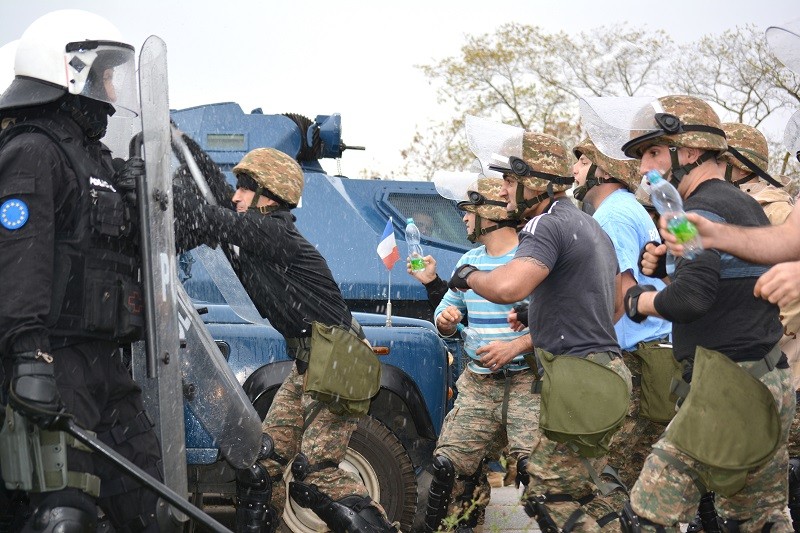
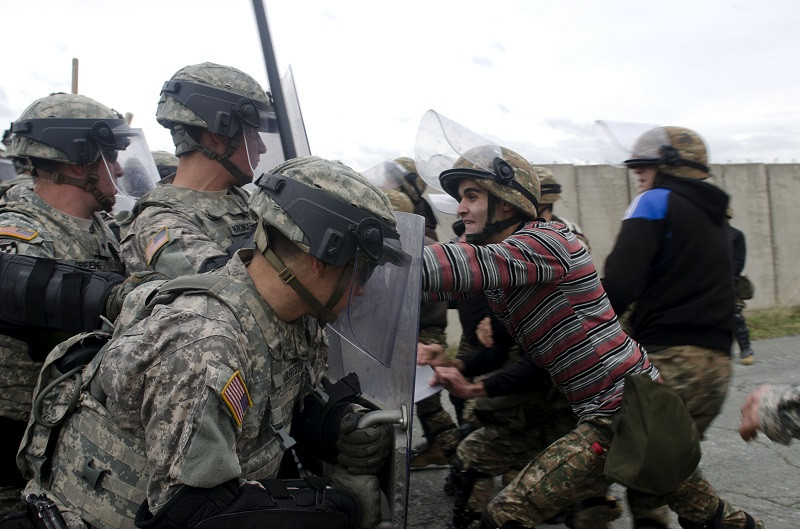
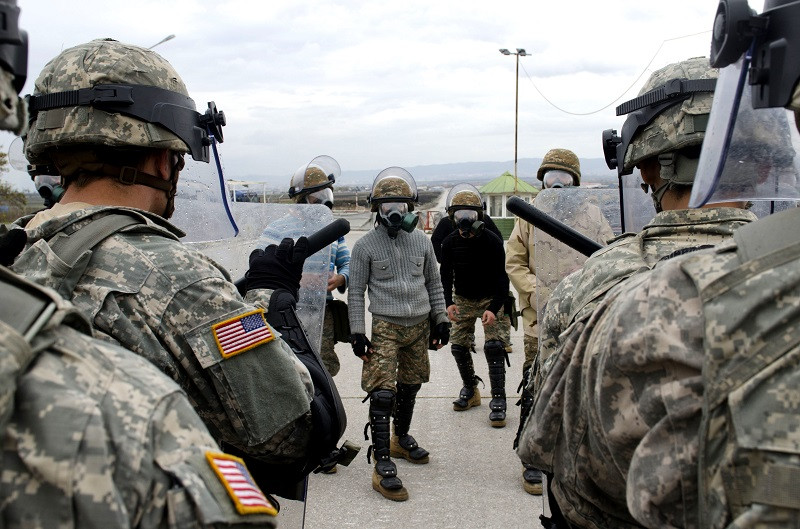






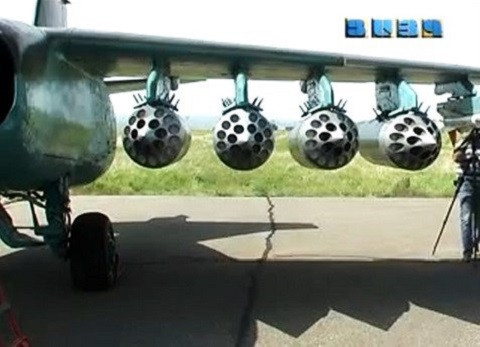
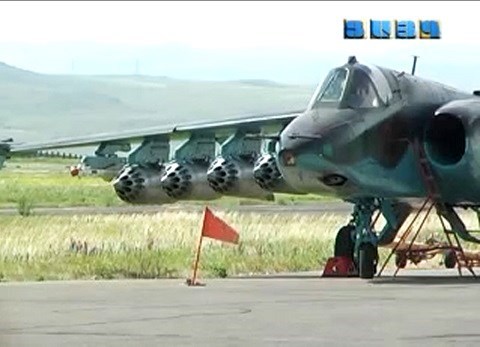
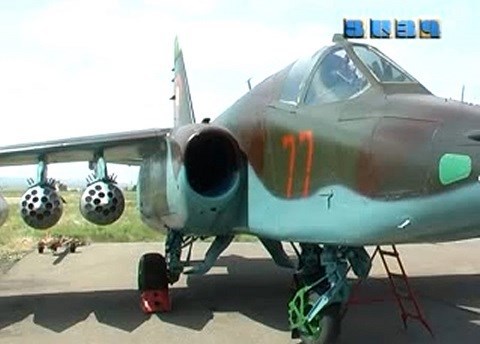
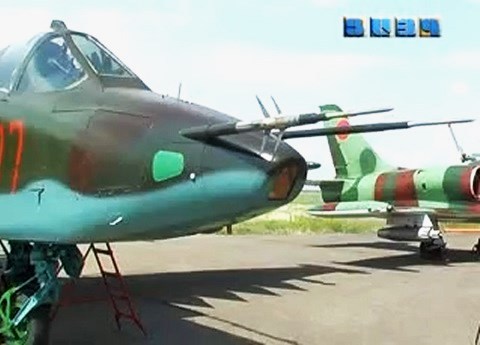
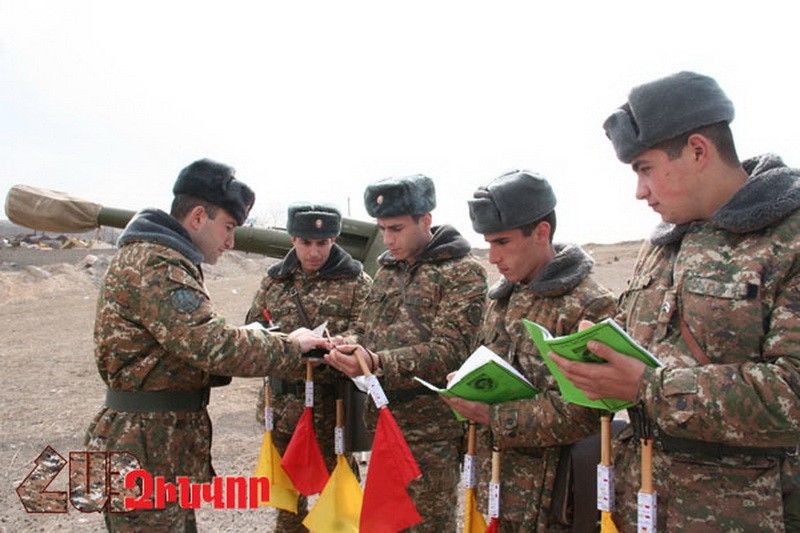
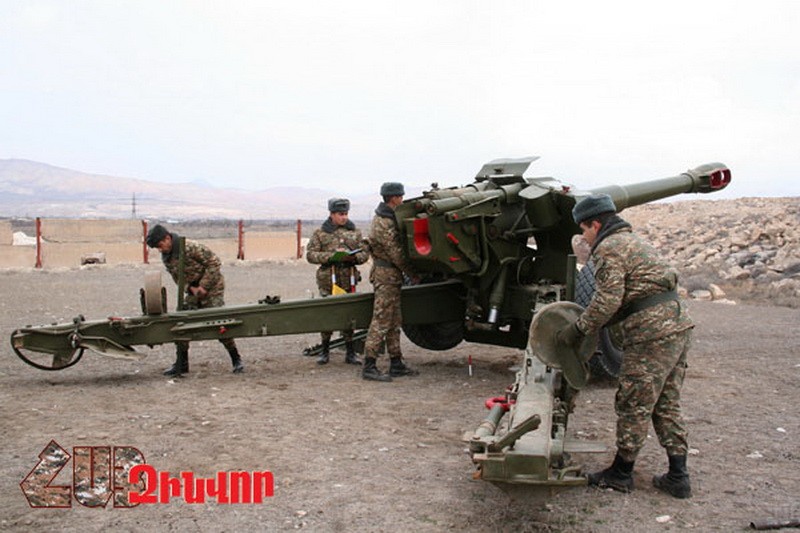
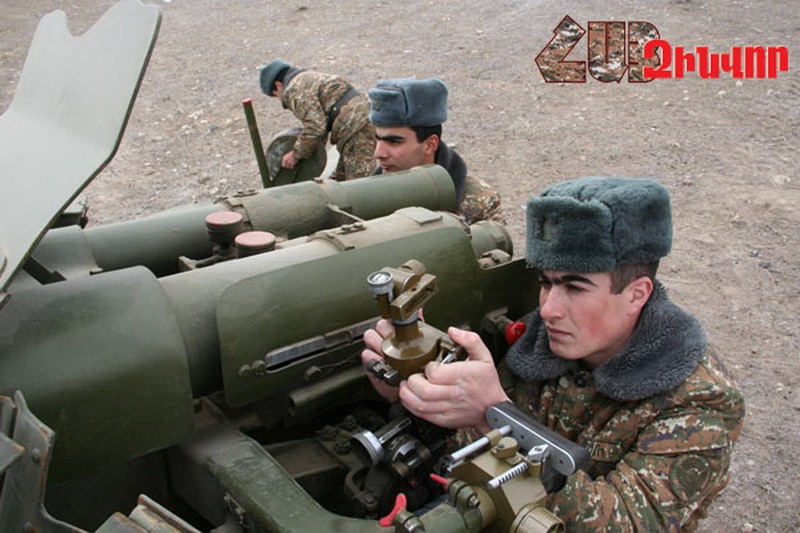
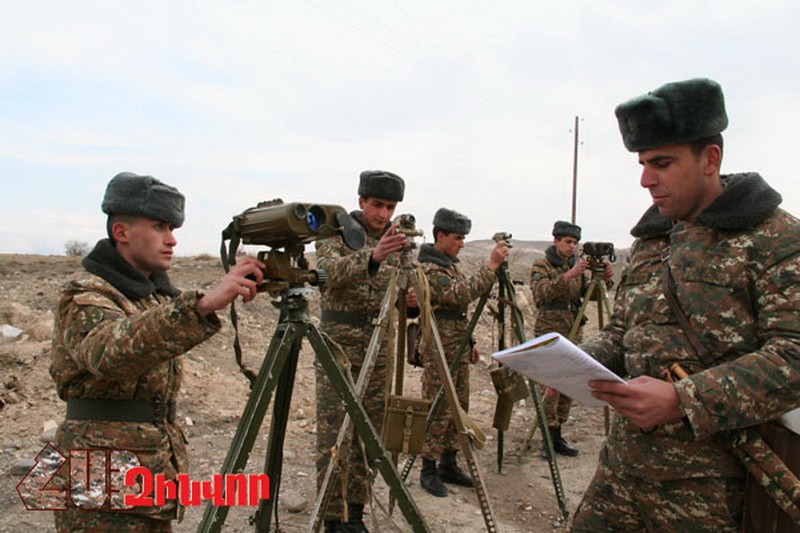
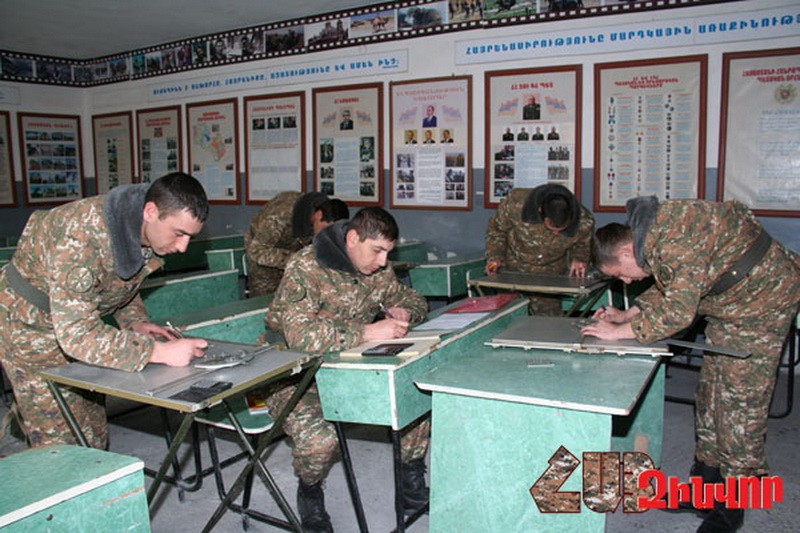


Comment